Olive oil is a staple in most British households, but not all are made equal. One journalist asked chefs, food experts, and connoisseurs to reveal their favourite and they all agreed on the same thing
16:08, 27 Aug 2025Updated 16:12, 27 Aug 2025
This article contains affiliate links, we will receive a commission on any sales we generate from it. Learn more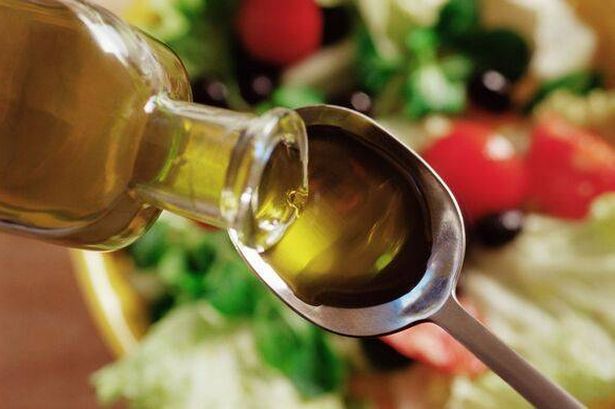 Good-quality EVOOs should have a protected designation of origin (PDO)(Image: Getty)
Good-quality EVOOs should have a protected designation of origin (PDO)(Image: Getty)
Olive oil is relied upon by most households throughout the week for cooking, dressings, dips, sauces, and marinades. It’s an adaptable ingredient that brings moisture, taste, and texture to countless dishes.
But not all olive oil is created equal. Extra virgin olive oil, commonly referred to as EVOO, is typically superior in quality compared to standard olive oil, remains unprocessed, cold-pressed and isn’t subjected to chemical or heat processing. Standard olive oil is generally a mixture of cold-pressed and processed oils, offers a gentler taste, a higher smoke point and is commonly much more affordable.
Cost is a big factor when buying EVOO, but Mazen Assaf, an olive oil sommelier and founder of The Olive Oil Guy, revealed that there’s more to selecting olive oil than simply the price.
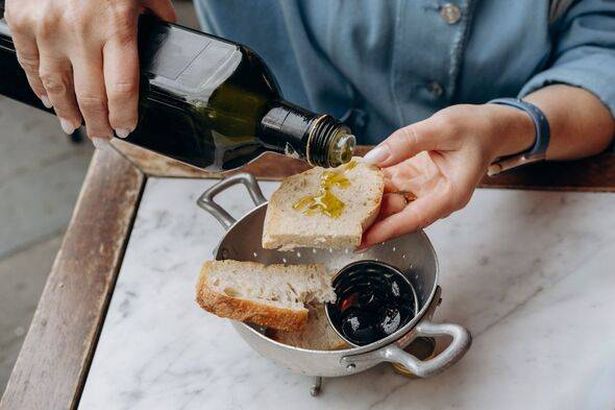 Olive oil and bread is a winning combo(Image: Getty)
Olive oil and bread is a winning combo(Image: Getty)
He told Express.co.uk: “When picking olive oil, go for bottles in tin or dark glass-heat, oxygen, and light destroy flavour and health benefits.
“Choose single-origin, ideally from a specific region like Sparta, Greece, and avoid vague ‘EU and Non-EU blends.’ Look for the olive variety on the label-there are 1,600 worldwide, each with a unique flavour. For example, think about all the table olives you eat: each variety tastes different. If the olive variety is stated on the bottle, it’s a step further to recognising its authenticity.”
In a quest to find the best olive oil, The Express journalist Millie Bull sought advice from chefs, food experts and olive oil aficionados.
While their brand recommendations varied, one common factor emerged: the origin of the olive oil. Most chefs and experts recommended Italian olive oils.
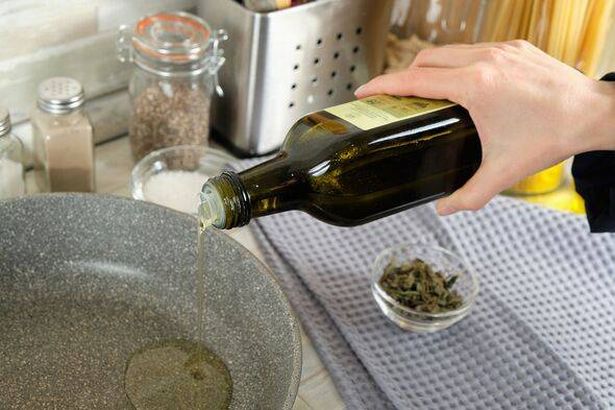 You can use extra virgin olive oil for cooking(Image: Getty)
You can use extra virgin olive oil for cooking(Image: Getty)
Connor Robson, head chef at contemporary Italian restaurant Bar Gigi, recommended Frantoio Muraglia, an olive oil produced from cold-pressed Coratina olives native to Italy’s Apulia region.
Priced at £41 in John Lewis, it may not be the cheapest option, but its beautiful terracotta bottle adorned with hand-painted designs makes it an ideal gift for any food enthusiast.
Mr Robson added: “It is a splurge, but every drop is worth it. Home cooks can easily elevate their food by choosing good quality, cold-pressed extra virgin olive oil. If the bottle just says ‘olive oil’ on the label, chances are it’s been blended with cheaper seed oils, which you want to avoid.”
Even if you’re not willing to spend that much on olive oil, you can still find a high-quality, affordable EVOO by checking the label. Good-quality EVOOs should have a protected designation of origin (PDO), a certification indicating the oil has been produced within a specific region using traditional methods.
The chef stated: “This guarantees that the quality is there and that the oil has not been treated in any way.”
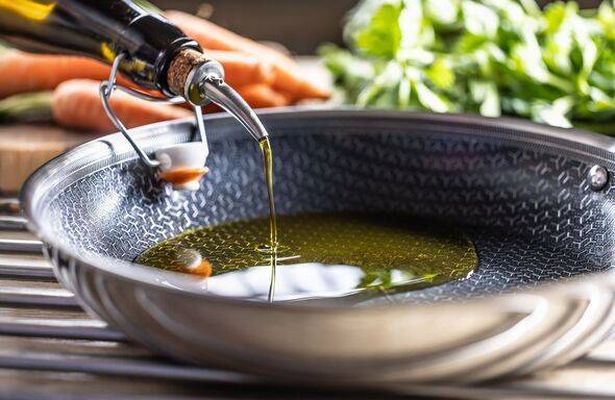 Olive oil is used by most households every day of the week (Image: Getty)
Olive oil is used by most households every day of the week (Image: Getty)
Jonathan Kleeman, a UK-based Group Beverage Manager, wine buyer, and hospitality consultant, also recommended an Italian olive oil: Manni olive oil which hails from Tuscany.
Mr Kleeman revealed his first encounter with this olive oil was during his tenure at a two-Michelin-star kitchen, where it was incorporated into several dishes.
The olive oil is the brainchild of Armando Manni, a passionate gourmet and wine collector, who collaborated with the University of Florence and the National Research Council of Italy to develop a completely new process dubbed “live oil”.
The expert said: “What that means in practice is that the extra virgin quality, the elements that earn it that title, lasts for up to two years. In most commercial extra virgin olive oils, you’re lucky if that quality lasts three months.”
Another expert who advocated for a Tuscan olive oil is Giulia Crouch, food writer and author of The Happiest Diet in the World. She expressed her favourite olive oil originates from a small, organic, family-run farm in the region named Fattoria La Vialla.
This olive oil is ordered directly from the seller, and the harvest year and date it was bottled are clearly displayed on the label, ensuring you know exactly what you’re getting.
Costing £35.10 for two 750ml bottles or £15.15 for one 500ml bottle, it represents good value and boasts a “clean, buttery and bitter” taste profile.
For those seeking something more budget-friendly and familiar, Which? magazine crowned Filippo Berio a “Best Buy” following a blind tasting trial that pitted three extra virgin olive oil blends from Filippo Berio, Napolina, and Tesco against each other.
Available for just £7.50 per 500ml from Tesco and Ocado, and £8 from Sainsbury’s, it offers a more wallet-friendly alternative for shoppers wanting to grab a bottle during their regular supermarket trip.
The expert olive oil tasting panel praised Filippo Berio’s dark glass packaging, which shields against UV rays that can compromise both the quality and taste of the oil.
Alternative olive oils
Several non-Italian olive oils secured spots on the list, including Belazu, which is stocked at Waitrose and available through Ocado. Mr Assaf, who stocks his own olive oil brand in Harrods and Selfridges, said they provide an outstanding range of olive oils across various price brackets.
Ocado is presently offering 500ml of Belazu’s Single Origin Extra Virgin Olive Oil for just £7.
The olive oil specialist continued: “Their oils are single-origin, packed in tins, and monovarietal. Their range of infused olive oils is also impressive.”
Head chef Benjamin Ferra Y Castell from the one Michelin-starred restaurant, Pavyllon London, suggested two olive oils: Kalios olive oil from Greece and Château d’Estoublon olive oil from France.
Kalios olive oil boasts a fruity taste and is crafted from hand-picked Koroneiki olives and cold-pressed.
Château d’Estoublon olive oil is manufactured organically utilising a swift cold-pressing method that maintains its freshness. Priced at £49.99 from Selfridges, it’s undoubtedly an indulgence but would serve as a wonderful present for any devoted food enthusiast.
Full list of expert-approved olive oilsMuraglia Rainbow Bottle Olive Oil, 500ml, £41 from John Lewis2024 Grand Cru: Per Me & Per Mio Figlio Organic Olive Oil Box Set – two 100ml bottles, £60 from ManniExtra Virgin Olive Oil 2024 ‘La Vialla’, 500ml £15.15 from Fattoria La ViallaFilippo Berio Extra Virgin Olive Oil, 500ml, £8 from Sainsbury’sBelazu Single Origin Extra Virgin Olive Oil, 500ml, £7 from OcadoKalios 01 Early Harvest Extra Virgin Olive Oil, 500ml, £20.99 from Sous ChefChâteau d’Estoublon olive oil, 500ml, £49.99 from Selfridges

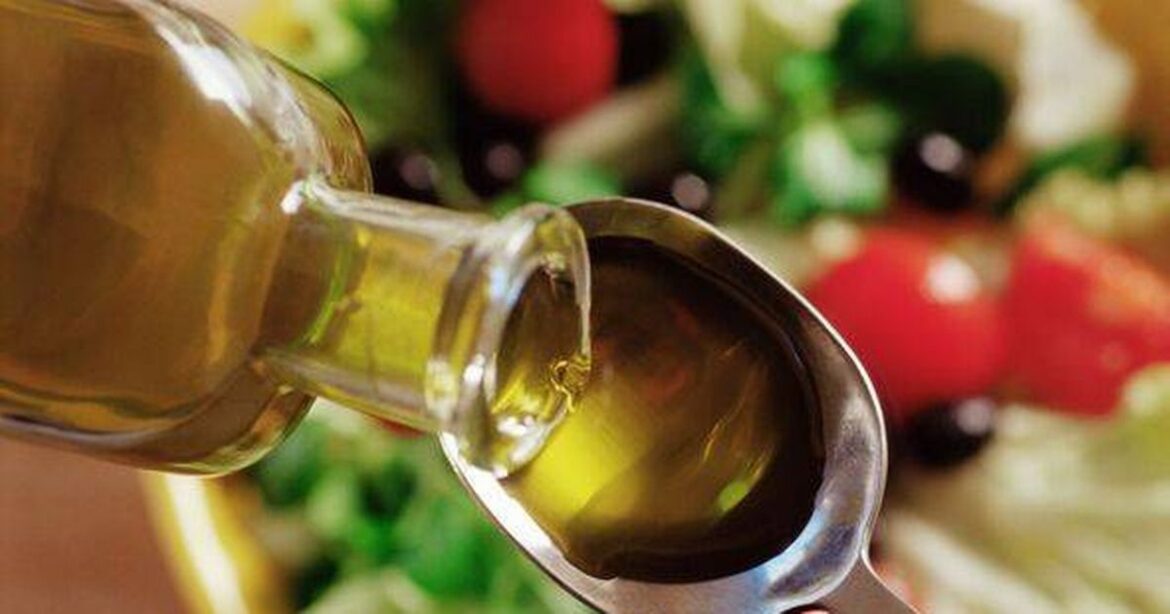
Dining and Cooking